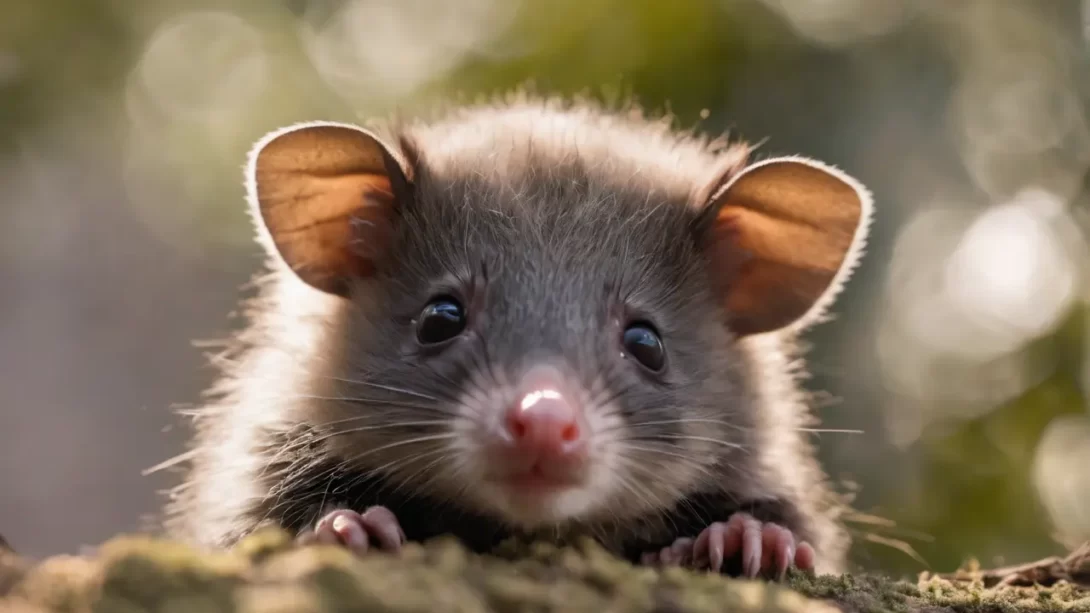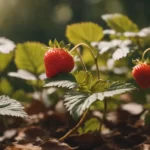Possums, particularly in their infancy, have specific dietary needs that are crucial for their survival and development. Baby possums, or joeys, require a specialized diet that changes as they grow. Understanding what to feed these young marsupials is essential for wildlife rehabilitators and those who find themselves caring for them. This article aims to provide comprehensive information on the dietary requirements of baby possums.
Baby Possums
Baby possums are born extremely underdeveloped and spend the first few months of their life in their mother’s pouch. During this time, they feed exclusively on their mother’s milk. As they mature and begin to venture outside the pouch, their diet gradually transitions to include solid foods. This weaning process is critical and dictates their dietary needs. It is also important to note that the dietary requirements of baby possums differ significantly from those of adults.
Diet of Baby Possums in the Wild
In their natural habitat, baby possums initially rely solely on their mother’s milk. As they grow, they start to consume the same foods as adult possums but in smaller quantities. This includes a variety of fruits, insects, and small animals. The transition from milk to solid foods is gradual and corresponds with the development of the possum’s digestive and immune systems.
Feeding Baby Possums in Rehabilitation
Caring for a baby possum in a rehabilitation setting requires a close approximation of its natural diet to ensure proper growth and health.
Milk Replacement
For very young joeys that are not yet weaned, a specialized marsupial milk replacer is necessary. This formula is designed to mimic the nutritional content of possum mother’s milk. Feeding schedules and techniques must be carefully followed, as overfeeding or improper feeding can lead to health issues.
Introduction to Solid Foods
Introducing solid foods to baby possums is a delicate process that requires careful attention. As joeys develop, their diet should slowly start to include:
- Soft Fruits: Initially, soft fruits like bananas, applesauce, and pears can be introduced. These should be mashed or pureed to ease the transition from milk to solids.
- High-Protein Foods: Protein is crucial for growth. Small amounts of high-protein baby cereals or finely chopped boiled eggs can be included.
- Insects: Offering small insects, such as crickets or mealworms, provides a natural protein source and introduces them to a diet more akin to their adult stage.
The consistency and quantity of these foods should be adjusted based on the age and development of the baby possum, ensuring they are neither underfed nor overfed.
Challenges in Feeding Baby Possums
Feeding baby possums comes with several challenges and potential health risks. Some of the common issues include:
- Dietary Imbalances: Ensuring a balanced diet is vital. Nutritional deficiencies can lead to developmental problems.
- Aspiration Pneumonia: Incorrect feeding techniques, especially with liquid formulas, can lead to aspiration pneumonia, a serious condition where food is inhaled into the lungs.
- Digestive Issues: Young possums have sensitive digestive systems. Sudden changes in diet or inappropriate food choices can cause gastrointestinal distress.
It is crucial to monitor the health of baby possums closely and look out for signs of distress or illness. Regular weight checks and observations of their behavior and stool can provide important clues about their health status.
Conclusion
Proper nutrition is pivotal for the healthy development of baby possums. Whether in the wild or in a rehabilitation setting, their diet undergoes a significant transition from solely milk to a variety of solid foods. This process must be managed with care to ensure that the joeys receive all the necessary nutrients for growth without overwhelming their developing digestive systems.
For those caring for baby possums, understanding and replicating their natural diet as closely as possible is key. Starting with a suitable milk replacement and gradually introducing a diverse range of solid foods can help these young marsupials thrive. It’s important to be mindful of the challenges involved, particularly the risks of dietary imbalances, aspiration pneumonia, and digestive issues. Regular monitoring and adjustments to the diet based on the possum’s growth and health are essential.
In summary, feeding baby possums requires a careful balance of providing the right nutrients at the right stage of development. By adhering to the guidelines for milk replacement and the gradual introduction of solid foods, rehabilitators and caregivers can significantly contribute to the health and well-being of these fascinating creatures. Caring for baby possums is not only a commitment to their individual health but also a contribution to the preservation of wildlife and natural ecosystems.



